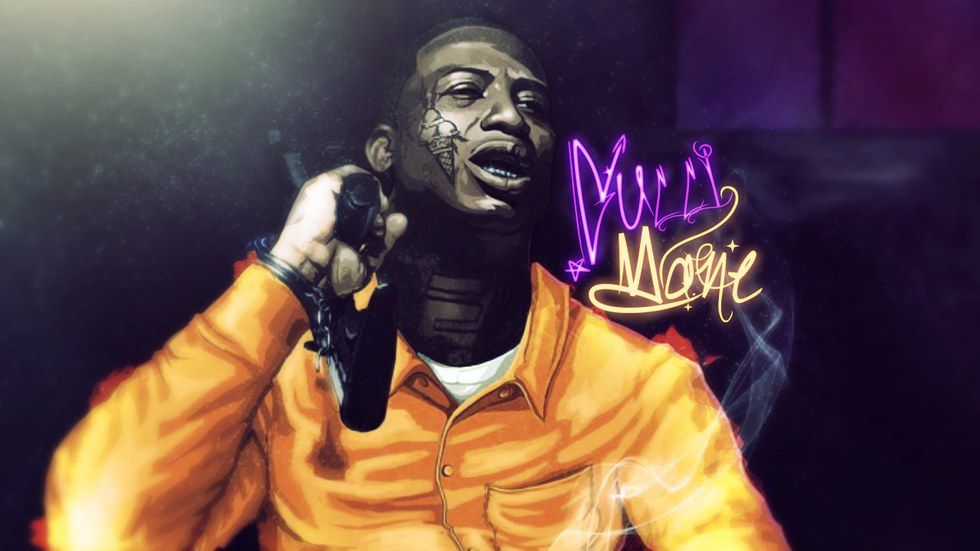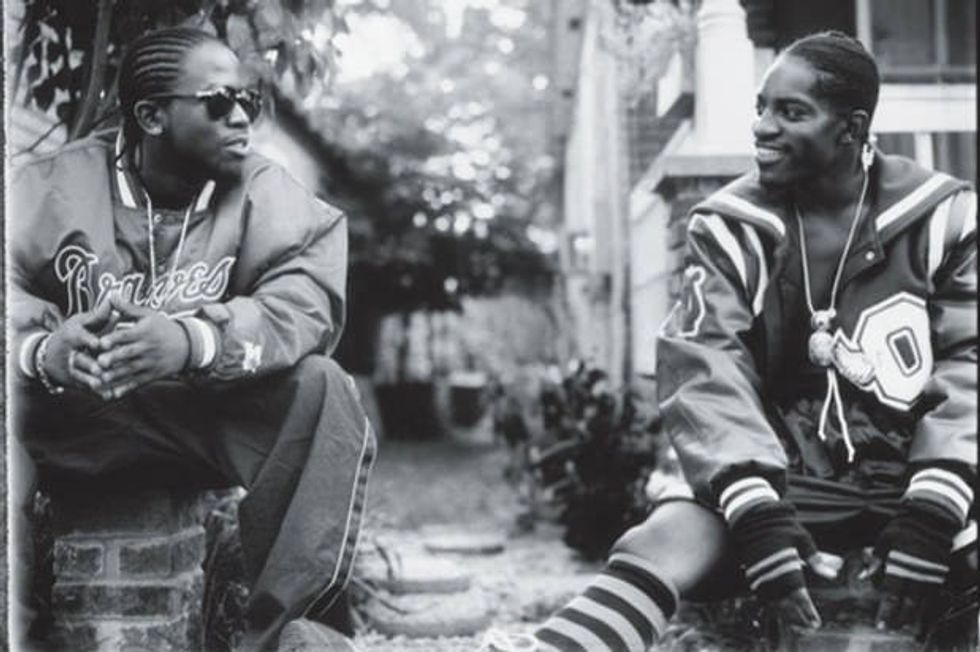Alabama Native, Gucci Mane, was recently released from a 2-year prison sentence at the Fulton County jail late Thursday Afternoon, May 26, 2016. He is a legendary leader in the Trap Rap era of hip hop and his return to the hip-hop community is one that is met with great honor. Many people don’t really understand the creative genius of Gucci Mane and his influence on trap music. The very foundations of Trap Music speak to the pain, jealousy, love, pride, chivalry, joy, and overall the life long tale of a larger African American community in Atlanta.
Trap Music can be defined as a sub-category of a larger Hip Hop music scene in the early 2000’s. At the decline of the war on drugs, it is clear that the damage has been done to the black male narrative in the black community as far as morality and honor code are concerned. Black Men and Women in the late 90’s were arrested and jailed due to the negative attention surrounding drug trade operations and crack cocaine usage by persons of color in lower income communities as well as high profile drug dealers. These government implanted drugs grew popular in the south and created a drug culture that ultimately molded “the trapper”. Old school southern hip hop artist like rappers Cool Breeze, Dungeon Family, Outkast, Goodie Mob, and Ghetto Mafia were some of the 1st to utilize this term known as “Trap” in their music to speak about this massive influx of drug dealing and organizing in Atlanta in the late 90’s to the early 2000’s. This lyrical theme expounded on the lifestyles of drug dealers, trafficker, and many other career aspiration that existed in communities where money and power were very limited. “Bass Music” was the existing musical identity founded in the southern United States that glorified the heavy bass lines and centered around the Donk Car and subwoofer speakers in the late 90's.This music transitioned to party music or Crunk Music that glorified heavy spending, luxury alcohols,and stripper lifestyles packaged into aggressive and upbeat lyrics. The beats heard in “Throw It Up” by Little John or "Vica Versa" by Pastor Troy uses these heavy sub-bass lines to create the energizing sounds we hear in many HBCU football band songs. Finally, Trap Music emerges with rappers like Yung Joc that utilized the synthesizer heavily in his song “Put On” from 2008 or "Who Dat" by Young Jeezy. It is these types of songs that shape the southern hip hop identity, shifting the focused on much more aggressive lyrical content and sound created this new trap music that Gucci Mane wrote. Many times the beats in these songs tripled and sped up a considerable amount, sub bass lines were extended, and kick drum could be heard on most "trap" mixes.
This new culture of criminality provided incubators for illegal drug selling marketplaces in homes called “Trap Houses” where drug dealers or “Trappers” could sell drugs undetected (as referenced in the paragraph above). Here, abandoned houses or “Bandos” were used as the center point for many drug trades, prostitution, and Cocaine storage. This high intensity, fast paced, criminal element surrounding Trap Houses and Trap Culture is the driving force that influenced rappers like Gucci Mane to create narratives that glorified this life of a trapper. Gucci Mane even named 3 of his mixtapes "Trap House" In a literary sense, that narrative is something that was very big in the south considering this underlined criminal element that supported drug trade due to widespread poverty, lack of decent public education , and social disorganization amongst the southern black communities.
Trap is poor, southern black poetry.
It is Gucci Mane who paved the way from many rap artist to sing and rap about the life of a “trapper” without actually being a “trapper” considering that these many of artist most likely never even lived the types of lifestyles they rap about. Artist like "the Migos", 3 young men from middle-class families in the suburban neighborhood of Gwinnett County, make songs that have suggestive, violent, misogynistic, and trap culture undertones but, they lack the depth and context of true trap music. It would be like making a pitcher of Kool-Aid without adding the extra sugar; it’s still Kool-Aid but it’s not the KOOL AID that we know and love. The issue with most of these popular “trap artist” is that there is never actually a general progression in their artistic development. Trap House 3 Mixtape Gucci Mane is not the same Gucci Mane from The State vs. Radric Davis The Appeal: Georgia's Most Wanted mixtape simply because these were completely different time periods in his life and career. While the content of his songs never changed the language, style, verbiage, rhyme scheme, and lyrical identity of Gucci Mane has definitely progressed upwards and grown more complex. The story lines, characters, and overall musical tone of Gucci Mane has matured since he has attained more wealth, grew older and wise, and had more life experiences that have improved his writing and storytelling skills; not to mention his run ins with the law as a result of his criminal background. These things are the true life experiences that are reflected in songs like "Chopper" by Gucci Mane that glorifies the gun violence amongst the trap community and points to an actual cause for these things intense shootouts that we often see on the news.
It’s concerning when an artist like Fetty Wap, originally from New Jersey, adopt this southern trap style and make songs like “Trap Queen”, taking away the hardened narratives behind of these trap pieces written by people who actually lived these things. Fetty Wap makes the trap lifestyle more digestible, appealing, and safer for broader audiences to listen to and ultimately make much more money from Teen Pop radio stations feel comfortable playing a watered down version trap music that sounds more like a child’s video game. Larger, more profitable white teen audience seem to like Fetty Wap's music much more for this reason and it has allowed him to do collaborations with artists like Justin Bieber and really rack in allot of money because of it. If you type in "Trap" in YouTube, you get pop electronica and dance mixes that have nothing to do with the origins and the original installment of trap music. You can even see the cover of songs like "Trap Queen" and "Whip" sung by teenage girls over acoustic guitars and pianos. This appropriation is very hard to come to terms with considering that these videos are the ones with millions of views and the videos that end up on Ellen; Gucci Mane himself has never done an interview with Ellen to date.
The music scene has been changed forever since the arrival of trap music and Gucci Mane will stand in history as one of the most influential rap artists to date.









 Energetic dance performance under the spotlight.
Energetic dance performance under the spotlight. Taylor Swift in a purple coat, captivating the crowd on stage.
Taylor Swift in a purple coat, captivating the crowd on stage. Taylor Swift shines on stage in a sparkling outfit and boots.
Taylor Swift shines on stage in a sparkling outfit and boots. Taylor Swift and Phoebe Bridgers sharing a joyful duet on stage.
Taylor Swift and Phoebe Bridgers sharing a joyful duet on stage.












